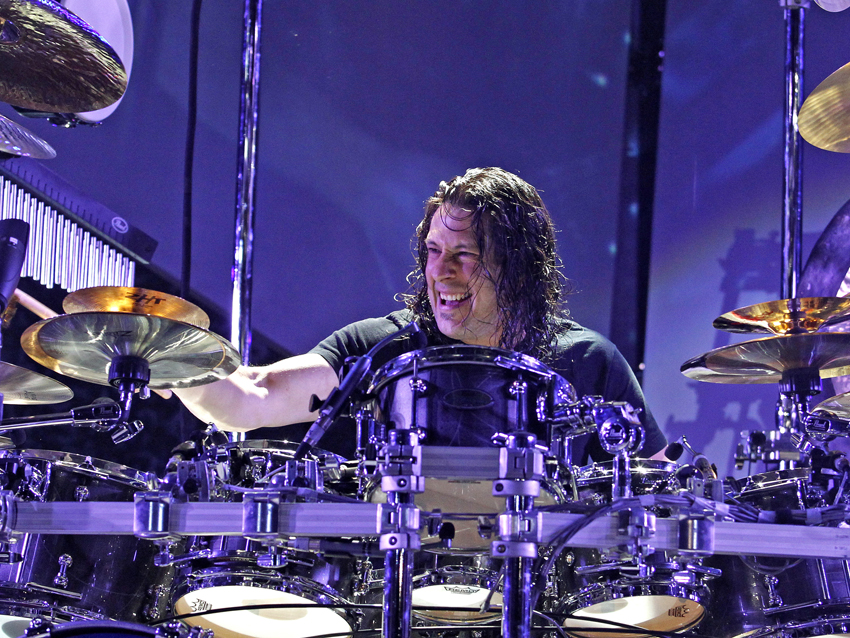
Dream Theater's Mike Mangini: my top 10 most-influential drum albums
“For me, what makes a great drum album is the combination of skill and musicality," says Mike Mangini, Dream Theater's master sticksman. "It’s about balance – how a drum part brings a song to a new level. When I hear a song with those elements and that balance, that’s when I want to hear it again, and even learn it.”
Mangini started listening to records early – he was already playing drums by two and a half – and he credits his brother Paul, 10 years his senior, with furthering his musical education. "For the first 10 years of my life, Paul would buy records for me," says Mangini. "Every time he gave me one, he’d say two words: 'Learn it.' It's interesting, though: He always gave me high-powered things, never anything mellow. He knew I couldn't tolerate that."
According to Mangini, compiling a list of those albums that influenced him the most as a player is a different task from assembling a rundown of his top 10 drummers. “If you asked me to name my top drummers, Dennis Chambers and Horacio Hernandez might be one and two – or tied for first," he says. "They’re incredible, but the have reason why I didn’t pick out any of their records is because I don’t have just one – it’s a collection. Not that the collection of Rush or Led Zeppelin records aren’t amazing, but this is really about me answering questions about my life and how these people and albums came into it."
As befits a drummer, timing is everything. “The important thing about the albums on this list is that each drummer gave me a piece of something," says Mangini. "But what’s equally important is the period in my life when they gave me that something. For example, a Max Roach record that might have influenced thousands of drummers isn’t one of mine simply because it didn’t come onto my radar, and if it did, it would have to have done so at a time I wasn't interested in it."
On the following pages, Mangini cites what he calls "my top 10 most-influential drum albums," stressing that his choices are in a specific chronological order. "Not for the year they came out, but for when and how they entered my life," he says. "These albums, and the drummers who play on them, are, in many ways, my musical evolution, my journey."
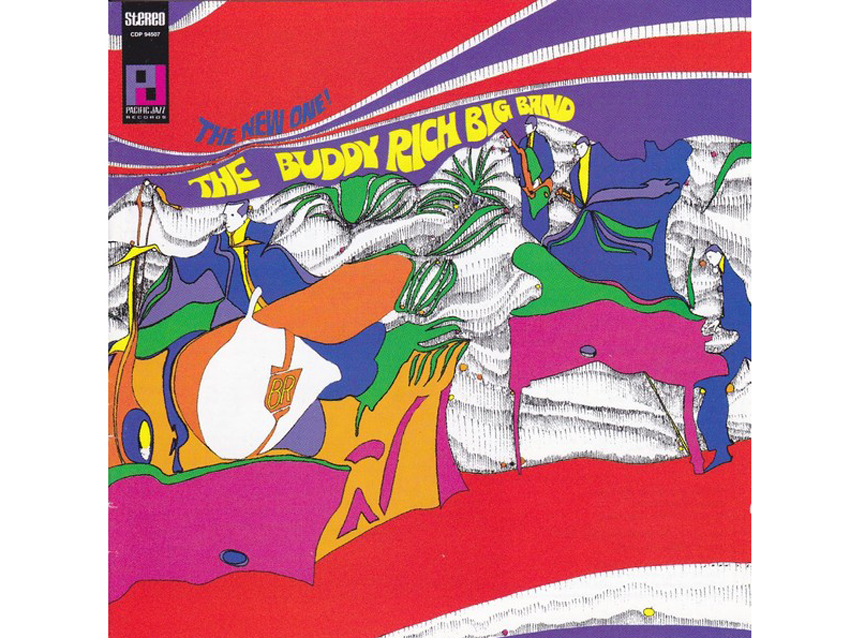
Buddy Rich - The New One! (1968)
“I was given this record by my older brother Paul. If I remember correctly, I was around nine years old at the time.
“There’s a song on the album called Diabolus, and it had a drum solo on it. I played it thousands of times on 16 rpms to try to dissect it. I can remember bits and pieces of that experience like they were video clips in my mind.
“The New One! affected me as far as slowing something down and taking the time to try to digest it. It gave me a natural insight, without being intellectual – I mean, come on, I was nine! – into playing odd time, and it gave me a love for swing and an understanding of notes not being even all the time. That’s an extension of some of The Beatles’ stuff anyway – swing.
“But this really made me dig in. It was extremely influential and required a lot of thought on my part.”
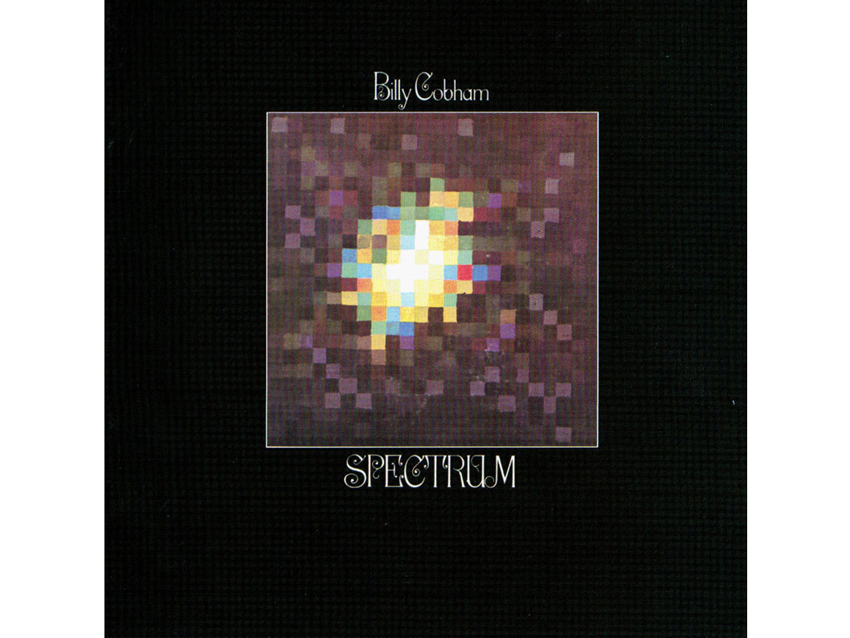
Billy Cobham - Spectrum (1973)
“This was given to me by a friend of my sister’s. Basically, he said, ‘You have to hear this!’ Although the record affected me greatly, I didn’t learn to play it. It hit me differently than The New One! It impressed me as though the entire album was one thing.
“Billy’s playing represented a different use of speed than what Buddy Rich was doing. It was my first exposure to… I don’t want to call it ‘high-powered funk.’ I don’t know what to call it, but fusion-funk is what I heard, especially him playing in 7.
“High energy, man. This was the first time I really heard that frantic use of speed.”
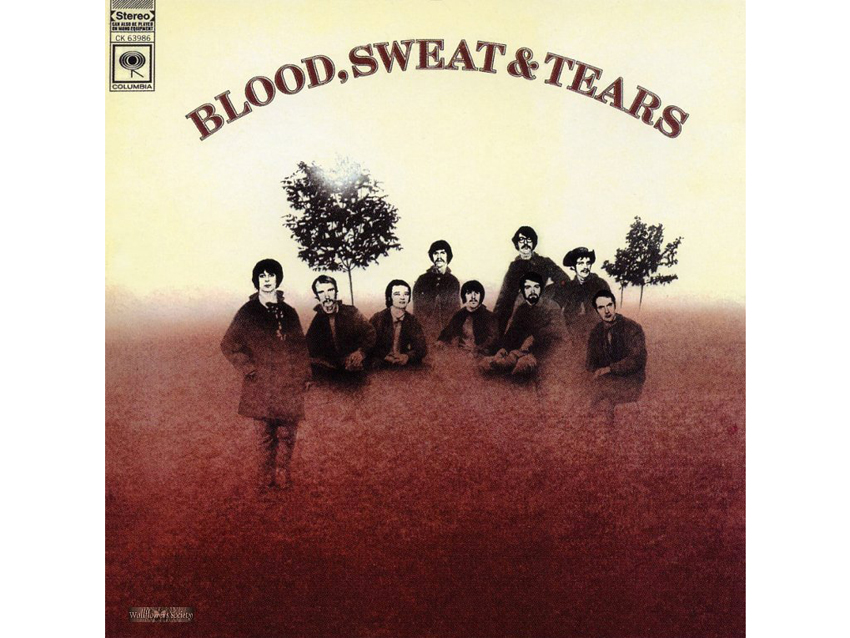
Blood, Sweat & Tears - Blood, Sweat & Tears (1968)
“I learned every note to every song on this album, and it’s the first time I ever did that, digging into every note of every single solitary song.
“Bobby Colomby’s use of polyrhythms and his dynamics – to this day, I cannot listen to this album and perceive it the way the time signatures actually are. I perceive it the way I did as a child, meaning that I didn’t know what the stuff was. And I can still play it spot-on without knowing what it is. That, to me, makes it a pretty special record.”
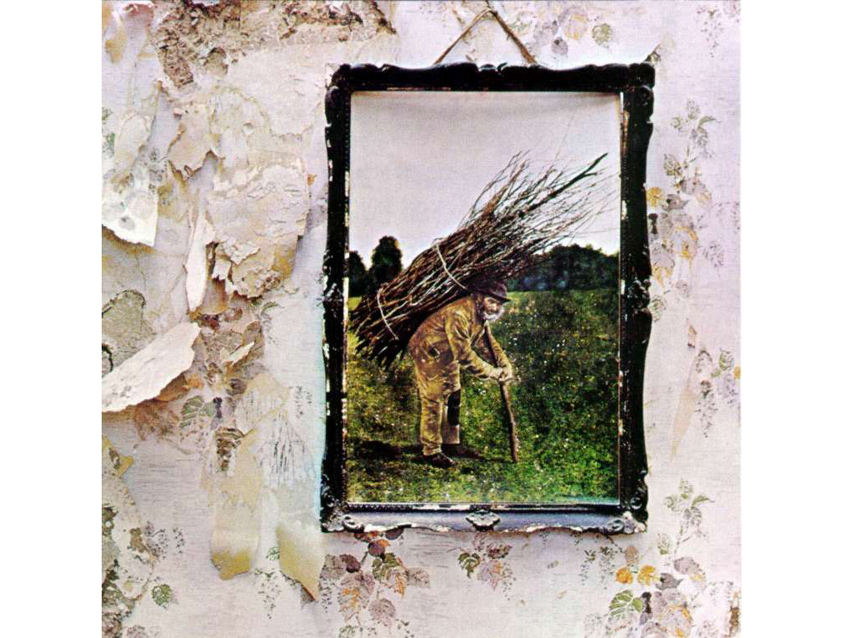
Led Zeppelin - Led Zeppelin IV (1971)
“Even though Led Zeppelin II totally knocked me out, this one was more influential as a drum album for me.
“I had never listened to a record before and pictured things in my heard. Led Zeppelin IV made me do that. It was like I could see movie scenes as well as drums. The recording was so unbelievable. I mean, the sound... I never heard rock ‘n’ roll hit me so potently since the first Boston record, which really got me into rock ‘n’ roll. Boston isn’t on this list, however, although it affected me hugely.
“Bonham’s entrances to songs, coming on an up 16th note, and his use of feel without a metronome – that stuff struck me hard. Even though I could sense that his timing sped up here and there – he would rush some things – it didn’t seem like a bad thing to me. It’s all in the feel as it relates to the music.
“The Battle Of Evermore – I could see forests! It wasn’t even a drum thing, but the visuals continued through the whole of the record. But again, Bonham’s feel, his power – what he did made me learn everything on the album. At least I had to try.”
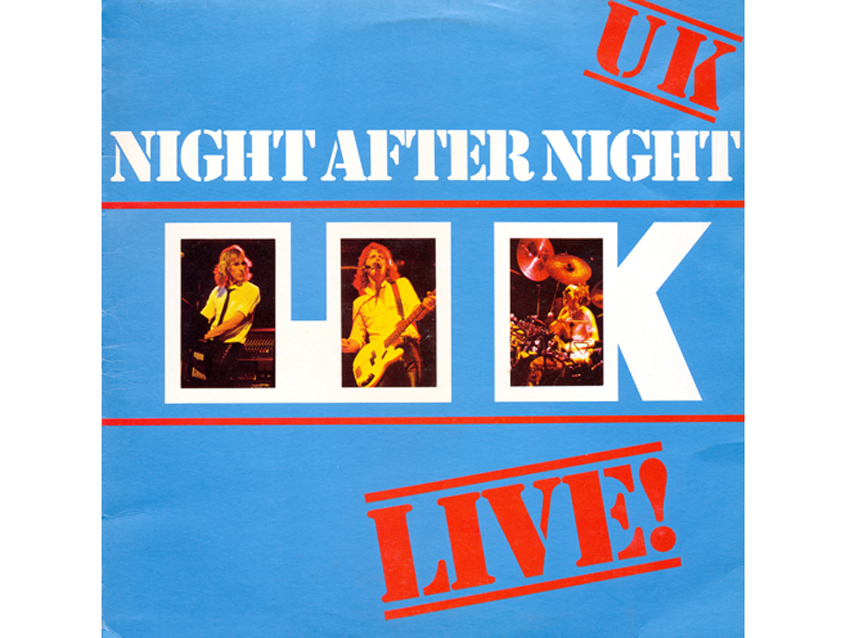
UK - Night After Night (1979)
“Oh, man! Terry Bozzio’s playing here is, to me, the most artistic use of the drum set and drum sounds. For me, this will always be number one, right there.
“Just the way that the different hi-hats and stacked cymbals were used and the amount with which they decayed – it’s unbelievable. There’s a song called Rendezvous 6.02, and to this day I can’t escape how it affected the way I construct drum parts.
One other thing about this record: Caesar’s Palace Blues gave me my first reason to practice hitting single strokes on the kick drums. Before that, when I was 16, I was double strokes and double-stroke rolls on Yellowjacket pedals. That’s how I made bass drums sound fast. But hearing Terry Bozzio on Caesar’s Palace Blues changed the way I played. It was like, ‘Oh my gosh, I have to pound my legs up! I can’t do that.’”
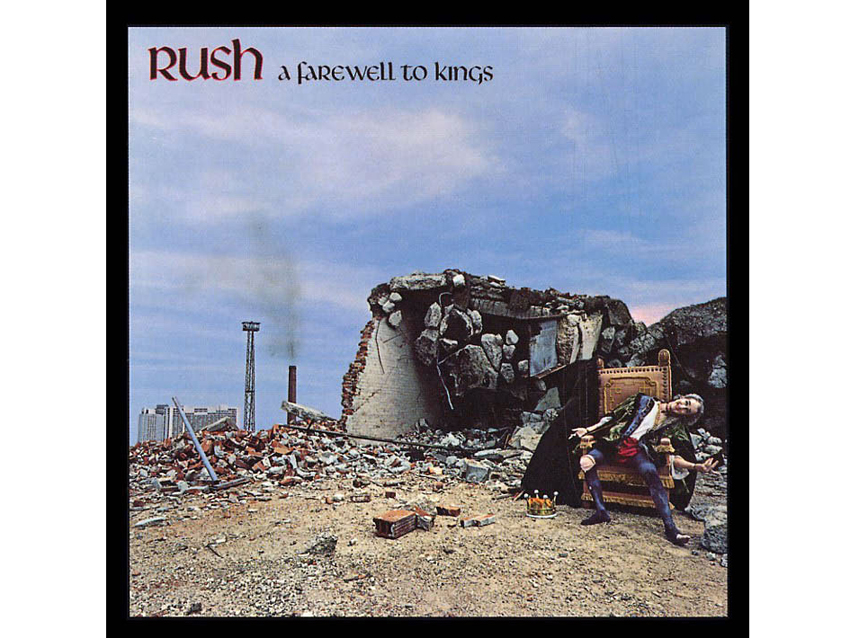
Rush - A Farewell To Kings (1977)
“I got this record by a fluke purchase through the Columbia Records Club – you know, you get to choose 10 albums for a penny? A Farewell To Kings was so pivotal for me at the time. I was in the school band, and a lot of kids didn’t think this was a cool thing – it wasn’t rock ‘n’ roll. But when I heard this record it gave me the strength to not fight my wanting to be in the school band and finding the purpose to practice at it.
“I didn’t find the purpose to practicing orchestra bells and chimes before – it all like a waste of time to me because I didn’t enjoy it. A Farewell To Kings opened my eyes to the combination of percussion. I mean, who uses a vibraslap? What is that? Hello? [laughs] Who plays that? But it was used perfectly here.
“There’s so many things about this record. The music, it’s always so over the top. The visuals – I had experienced them with Led Zeppelin IV, but with A Farewell To Kings, man, it’s like, if other kids were experimenting with pot, all I had to do was listen to this album and get what I needed. I could close my eyes and just go somewhere.
“It’s aggressive, it has time changes and dynamics – it’s truly incredible.”
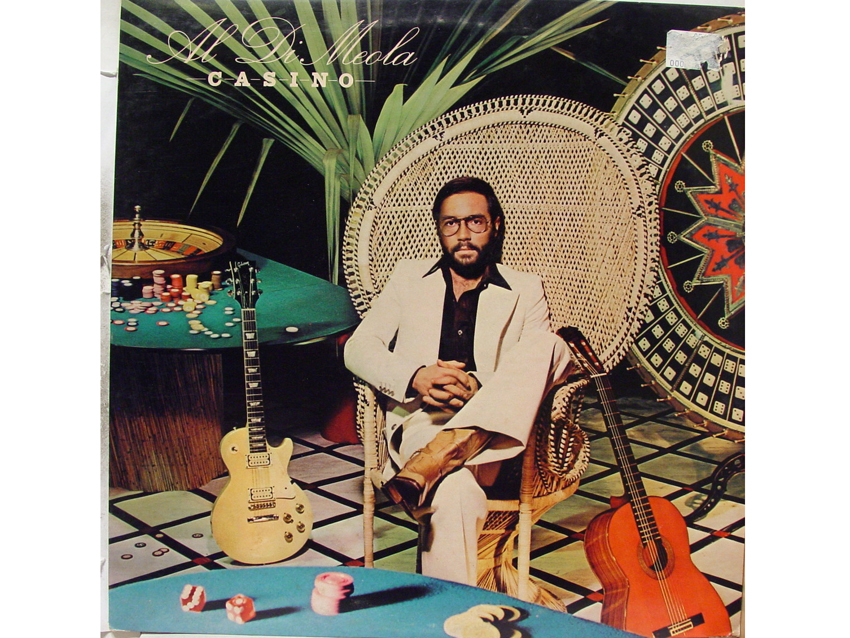
Al Di Meola - Casino (1978)
“The drummer on this record is Steve Gadd. Now, the Gadd album that impacted me the most was Friends by Chick Corea, but Casino makes this list because it’s the top 10 drum albums.
“Friends can be a side note here, because I heard musicality in his drum fills. The Brazilian stuff, too. It was a fusion record; he was fusing jazz and Brazilian – it wasn’t just a Latin record. So Friends was an important record because it led me back to jazz, which took me to Al Di Meola.
“But Casino is the album that just kills me. It's unbelievable.”
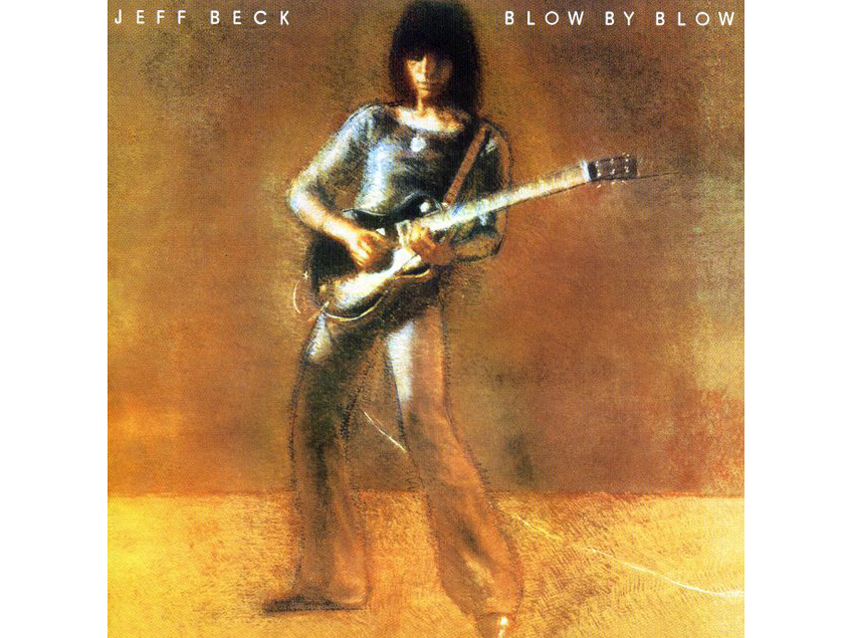
Jeff Beck - Blow By Blow (1975)
“Richard Bailey is the drummer. I can see that with my photographic memory. Isn't that funny? In my mind, I visualized the back of the record and saw the name ‘Richard Bailey.’ That’s what music can do to you.
“I don’t know what kind of description I can give this album other than to simply list it. But I have to give it some purpose. It was important to me because of the timing of it – post-Steve Gadd, the whole Jeff Beck thing gave me some purpose in my life, the calling to be with guitar players. I ended up with guitar players, not by choice but because of a calling.
“What Richard Bailey’s playing did for me was keep me on track with polyrhythms and time changes. I could hear the tempos on this record going up and down, but I could feel the musicality in it, and I could see how the musicality of the drum parts fit the music. That’s the main thread running through all of the records on this list.”
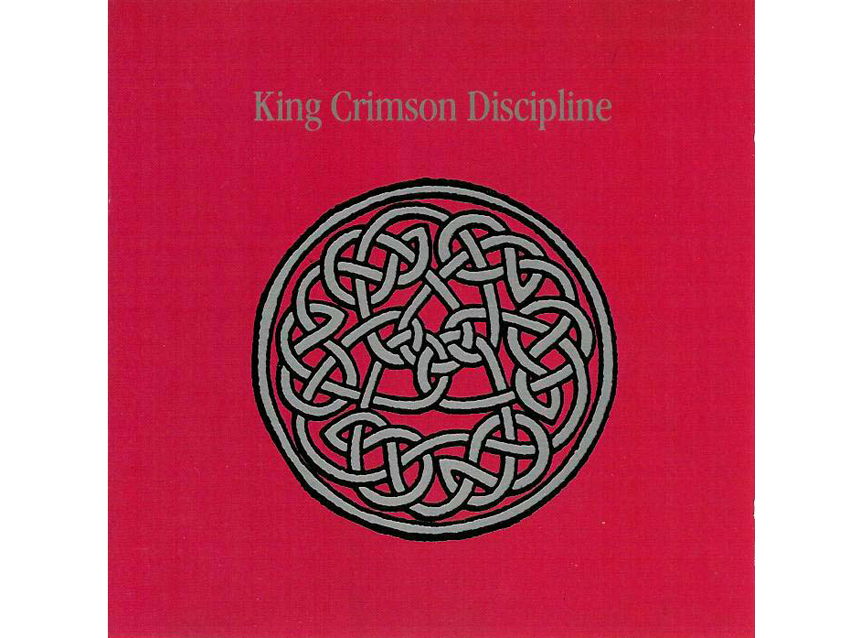
King Crimson - Discipline (1981)
“Bill Bruford’s use of toms to act as ride sources – I mean, hello? [laughs] And the sound. The sound of the rototoms' ride… Wow!
“Bill’s playing is so innovative, especially the crisscross kind of thing – again, it kept me from being either total rock or metal. It kept me in the fusion-y zone but on the rock side of it.”

Planet X - Quantum (2007)
“Now, with King Crimson and Discipline, that came out decades ago – as did all of the other records. But I have to break out of that mold with a fairly recent one, and that would be Quantum.
“I have to say that two of the most influential drummers to me – or favorite drummers – are Dennis Chambers and Horacio Hernandez. I have to give them that credit. But I can't list any one record of theirs because anything they do sticks out to me.
“So with Quantum, it’s a specific record. And what Virgil Donati does on the album with his side-to-side coordination is the final frontier of the drums to expand the body. My tiny little contribution to drums on a technical level is the crisscrossing thing that nobody had done, which is the full lefty – not just the hands but the feet – and full righty as an orchestral approach to rock ‘n’ roll. That’s my little calling thing that made me bond with Virgil and Marco Minnemann. We help one another progress.
“Virgil tapped into this first, as far as I’m aware, and his use of it on Quantum is utterly astounding. I have to include this album as a jump to the next level of drumming."
Honorable mention: "State Of Euphoria by Anthrax. Charlie Benante’s single strokes with his feet, bar none, are the best I’ve ever heard. To this day, that record is just freaky. The dude must own stock in Mountain Dew! [laughs] I have to give a call to this record because it’s probably the bridge album between the top nine and Quantum.”
Joe is a freelance journalist who has, over the past few decades, interviewed hundreds of guitarists for Guitar World, Guitar Player, MusicRadar and Classic Rock. He is also a former editor of Guitar World, contributing writer for Guitar Aficionado and VP of A&R for Island Records. He’s an enthusiastic guitarist, but he’s nowhere near the likes of the people he interviews. Surprisingly, his skills are more suited to the drums. If you need a drummer for your Beatles tribute band, look him up.
